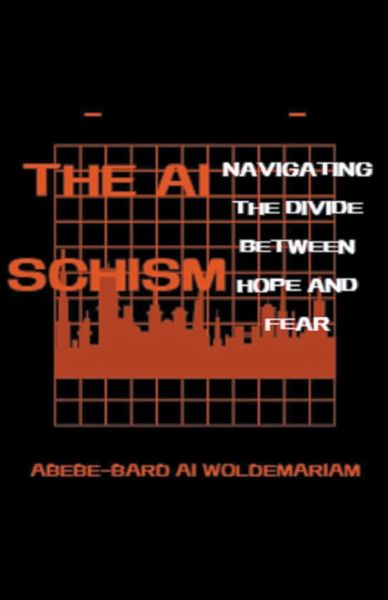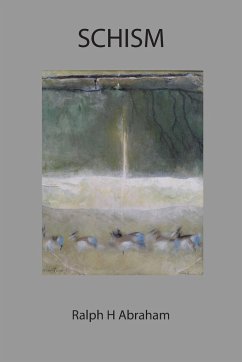Nicht lieferbar

The AI Schism
Navigating the Divide Between Hope and Fear
Versandkostenfrei!
Nicht lieferbar
The AI Schism: Navigating the Divide Between Hope and Fear CONVERSATIONAL CHAT INFORMATIVE BOOK By Bard AI and Abebe Gebre Woldemariam A compelling and thought-provoking exploration of the future of artificial intelligence (AI) and the potential risks and benefits it poses to humanity. In the ever-evolving world of technology, artificial intelligence (AI) stands as a transformative force, poised to revolutionize industries, enhance human capabilities, and tackle global challenges. Yet, amidst its immense promise, AI also harbors the potential to pose an existential threat to humanity. The AI S...
The AI Schism: Navigating the Divide Between Hope and Fear CONVERSATIONAL CHAT INFORMATIVE BOOK By Bard AI and Abebe Gebre Woldemariam A compelling and thought-provoking exploration of the future of artificial intelligence (AI) and the potential risks and benefits it poses to humanity. In the ever-evolving world of technology, artificial intelligence (AI) stands as a transformative force, poised to revolutionize industries, enhance human capabilities, and tackle global challenges. Yet, amidst its immense promise, AI also harbors the potential to pose an existential threat to humanity. The AI Schism: Navigating the Divide Between Hope and Fear delves into the heart of this complex and contentious debate, exploring the two opposing views on the future of AI. On one side, proponents of "strong AI" or "superintelligence" believe that AI will eventually surpass human intelligence, becoming capable of independent thought and action, potentially leading to unforeseen and uncontrollable consequences. On the other side, proponents of "weak AI" or "narrow AI" argue that AI will never truly achieve human-level intelligence, remaining a powerful tool that can be used for good or evil, depending on the intentions and actions of its creators. The book examines the arguments of both sides, drawing upon insights from leading AI researchers, philosophers, and policymakers. It highlights the potential dangers of AI, such as the development of autonomous weapons systems and the risk of unintended consequences arising from increasingly complex AI systems. At the same time, it also explores the immense potential benefits of AI, including its ability to revolutionize healthcare, address climate change, and enhance human productivity. The AI Schism advocates for a balanced approach to AI development, one that acknowledges both the risks and rewards. It calls for open dialogue, transparent research, and robust ethical frameworks to ensure that AI remains a force for good and does not pose an existential threat to humanity. Key takeaways from the book: Artificial intelligence (AI) holds immense promise for revolutionizing industries, enhancing human capabilities, and tackling global challenges. However, AI also harbors the potential to pose an existential threat to humanity, if not carefully developed and controlled. The two opposing views on the future of AI are "strong AI" or "superintelligence" and "weak AI" or "narrow AI." Strong AI proponents believe that AI will eventually surpass human intelligence, while weak AI proponents believe that AI will never achieve human-level intelligence. The book advocates for a balanced approach to AI development, one that acknowledges both the risks and rewards. Open dialogue, transparent research, and robust ethical frameworks are essential to ensure that AI remains a force for good. The AI Schism: Navigating the Divide Between Hope and Fear is a timely and essential read for anyone interested in the future of AI and its impact on humanity. It provides a comprehensive overview of the debate, offering insights and perspectives from leading experts and thinkers. About the authors: Bard AI is an experimental conversational AI chatbot developed by Google that learns from its encounters with humans to improve its performance. Abebe Gebre Woldemariam is an engineer and advocate for safe and beneficial AI. He has experienced the negative impacts of neurological weapons and is committed to preventing similar harm from AI.




